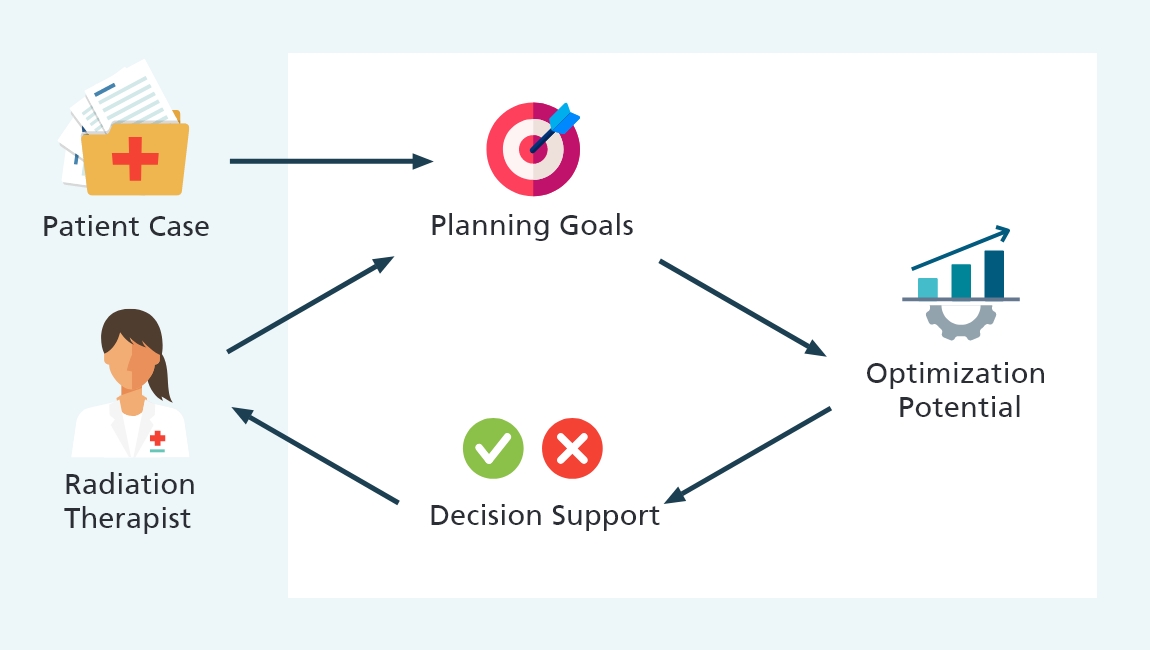Compared with conventional radiotherapy, proton therapy allows more targeted irradiation and thus better protection of organs and surrounding tissue. However, these advantages can only be effectively exploited if uncertainties regarding the range of radiation and its biological effectiveness are reduced in the planning stage. We are working with LMU Munich to incorporate additional information into the planning process so that better treatment plans can be proposed to medical professionals.
Incorporating Let and Range Verification Into Planning
Proton radiation has the potential to destroy cell DNA. The biological effect of radiation is characterized not only by the dose delivered, but also by the local concentration of energy delivery (Linear Energy Transfer = LET). The aim of the project is to improve the LET distribution by appropriate planning without neglecting other planning aspects.
In addition, to avoid treatment errors due to positional or simulation inaccuracies, real-time monitoring of the treatment can be performed. This is based on the measurement of secondary radiation. The informative value of this measurement should also be improved by suitable planning.

